Soldiers train for cold war by plunging into bitter North Sea
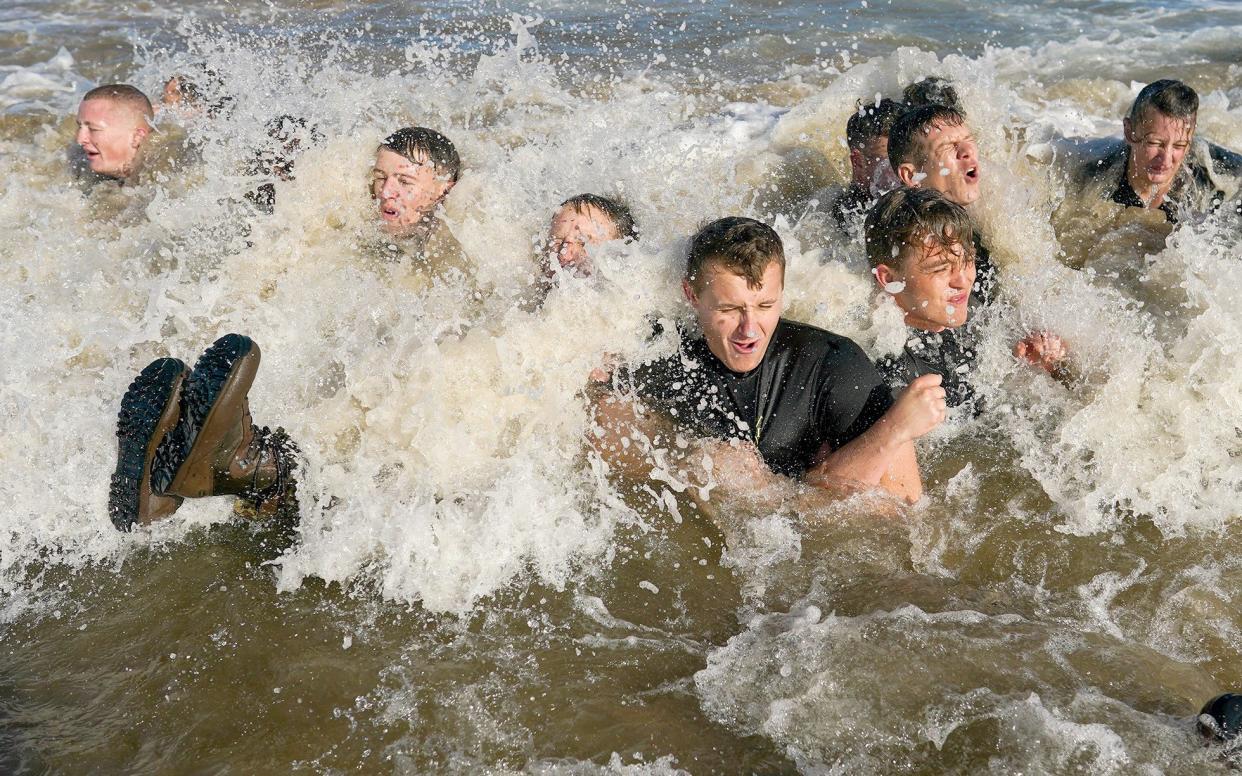
Soldiers from the 4th Regiment Royal Artillery were put through their paces on Thursday as they carried out physical training exercises in the North Sea.
Regiment leaders tested the mettle of their recruits at Saltburn beach in North East England as they were seen plunging into the sea in T-shirts, with water temperatures of only 12C.
The soldiers undertook a series of endurance exercises, including crawling across the beach in scenes reminiscent of D-Day landings, rolling tractor tyres across the sand, and marching with heavy rucksacks on their backs.
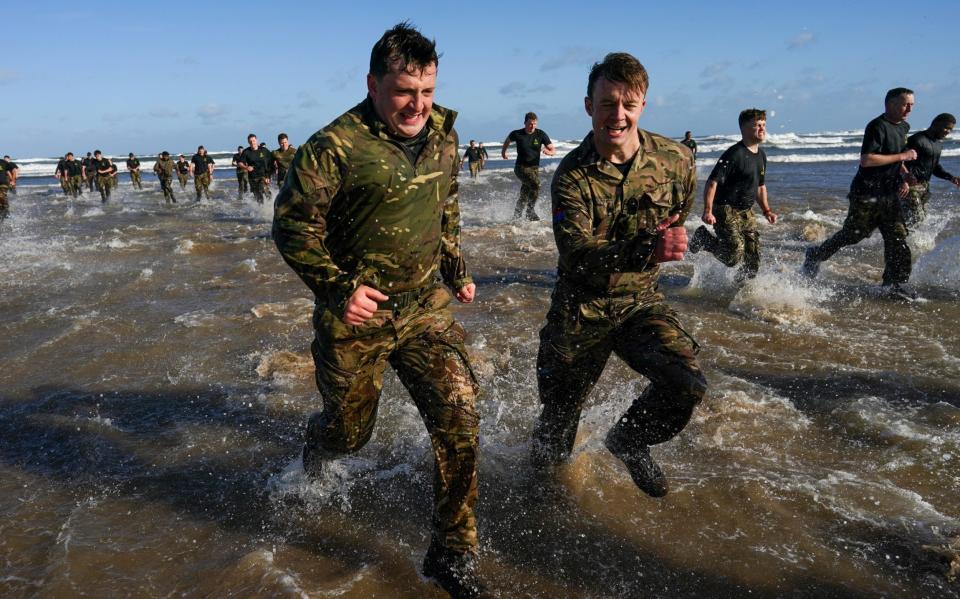
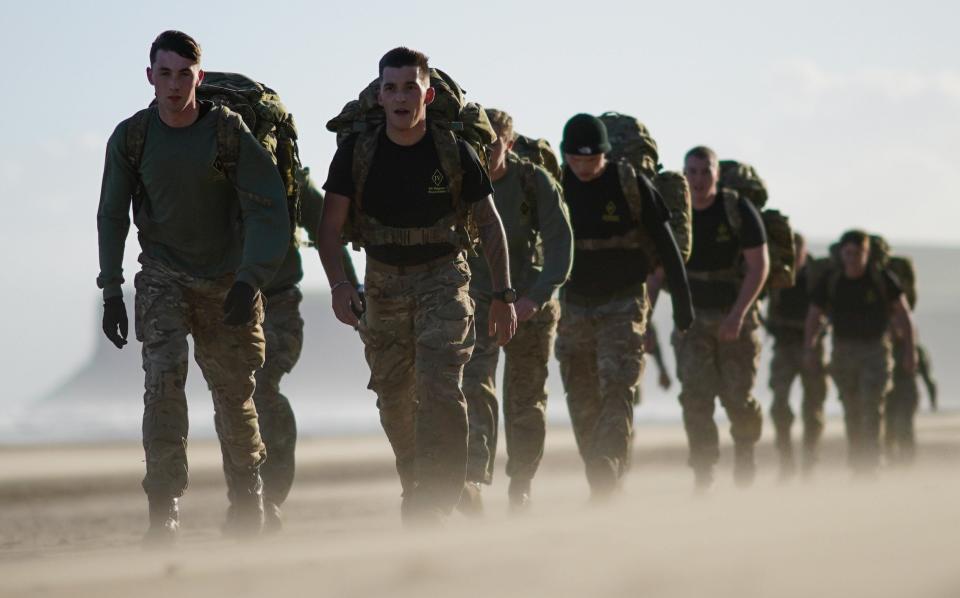
The 4th Regiment Royal Artillery - which typically recruits from across the North of England and is currently based in Topcliffe, North Yorkshire - provides combat support to both infantry and cavalry regiments.
Formed in 1939 at Helmieh in Egypt, the regiment has gone on to be deployed operationally 17 times, including in the Falkland Islands, Iraq, Afghanistan, Northern Ireland and Borneo.
In its current role as a light gun regiment, its soldiers are posted across the world and form part of Nato's Very High Readiness Joint Task Force.
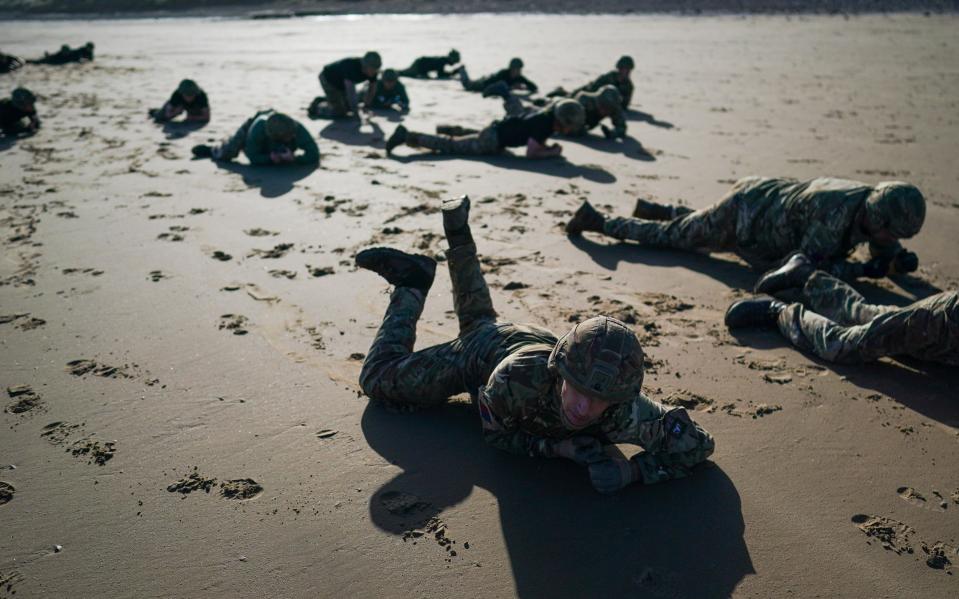
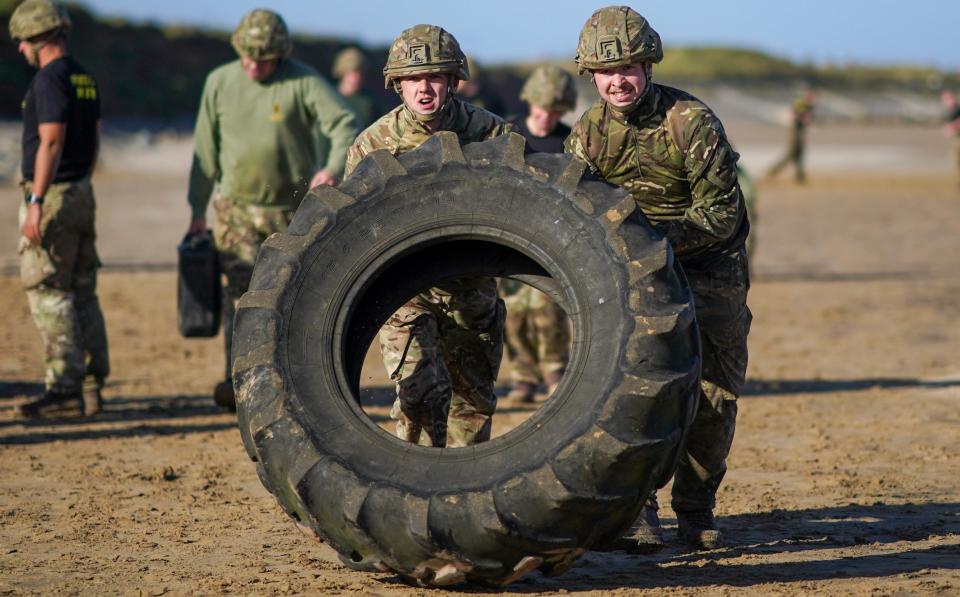
Beyond its operational deployments, the regiment has also carried out training operations in Kenya, Canada, Belize, Spain, Australia, Gibraltar and the United States.
In recent years, the Northeast Gunners, as the regiment is also known, has been deployed to Cyprus as part of the Army's Operation Tosca, patrolling the buffer zone that separates the Greek and Turkish parts of the island.
The regiment also assisted with the construction of NHS Nightingale Hospital Yorkshire and the Humber, a temporary critical care hospital, at the height of the coronavirus pandemic.

